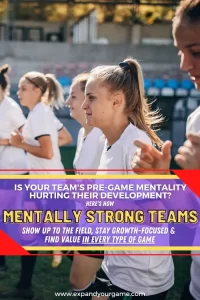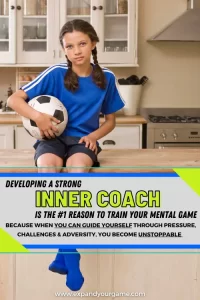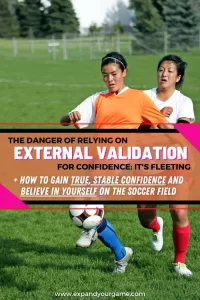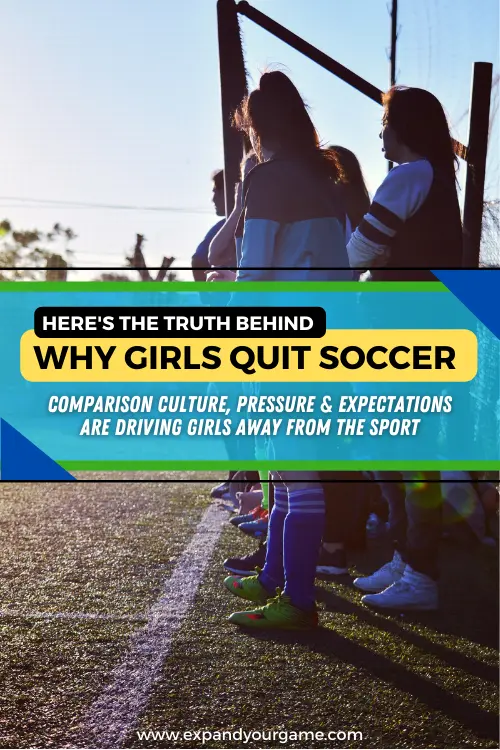
This Post Contains:
Why do girls quit soccer?
Women’s soccer is exploding right now. With competitive clubs and leagues for promising young players popping up at lightning speed across the United States, the NWSL expanding, and multiple new professional leagues kicking off, not to mention a growing market of fans that can’t get enough – women’s soccer is hot stuff right now. (This NYTimes article does a fantastic job of explaining how Title IX’s impact paved the way to this phenomenal moment we are at.)
More girls are playing soccer than ever before, that’s a fact. It’s also a fact that girls are still dropping out of soccer at a high rate – even while the sport is flourishing. Why is this happening? Why are girls still quitting soccer?
Here's why girls drop out of sports
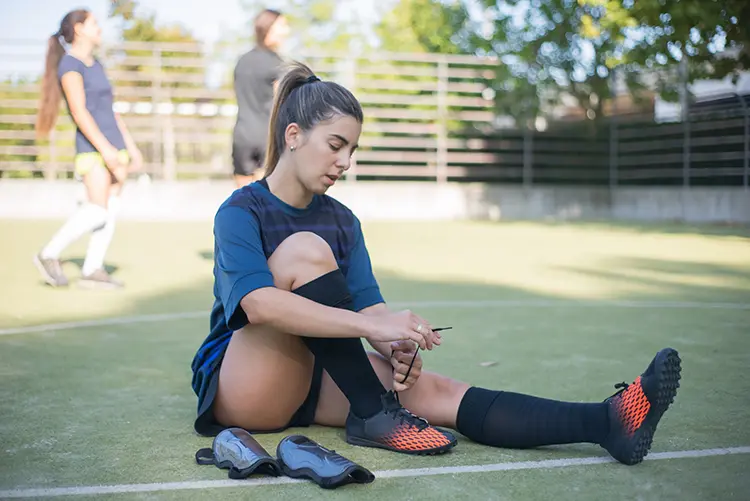
Today’s culture has created an environment where young women feel like they can no longer do things just for fun, they HAVE to be good at them. Because of this, they hold themselves to impossibly high, unrealistic standards of perfection in everything they do. There is no room for being OK at something or just doing it because you enjoy it, you must be good at it.
soccer Is 90% Mental
So what are you doing to train that part of your game?
Introducing the Mindset Mastery Academy
A 10-week 1:1 mental skills mentorship experience for female soccer players
Pressure, expectations and comparison culture
These feelings are not unique to recreational players, but these players are the first ones to call it quits because they do not have the same long term goals as the players that have invested themselves into the competitive youth soccer market. Club, premier and elite players feel the pressure as well and do call it quits. But more of these players will keep going even with the pressure: they’ve either done the mental skills training needed to push through and reach their goals, or they are too invested in the process at this point to drop out. Some thrive after pushing through while others try for a little while longer before pulling the plug.
Grow your confidence through preparedness.

Subscribe to our email list to
Get your FREE Weekly Soccer Planner!
We respect your privacy. Unsubscribe anytime.
Other reasons why girls drop out of sports

- Burnout: burnout happens when you feel frustrated from putting in a lot of effort and getting slow progress in return. Burnout is when you decide that your goals are no longer attainable and feel that it would be best to just give up and walk away.
- Productivity shame: social conditioning has led some of us to a place where we believe ALL minutes must be productive minutes. That means we can’t do something simply ‘for fun’ because that is not a productive use of our time. If you do something fun, you feel guilty about it.
- Injury: injuries can play a big role in girls dropping out of sports. Not only recovery after injury (getting back to where you were before the injury) but also potential of an injury can cause anxiety – especially in recreational soccer where the range of skill can be quite large and some players feel more vulnerable when up against stronger, more competitive players.
- Capacity: once girls enter high school, they often find themselves in a place where they don’t have as much time on their hands as they used to. Between school, working, trying to get into college and extra curricular activities, they don’t have a ton of capacity and it can be rough to try and do it all.
- Limited resources: Girls also drop out of sports too due to transportation and financial issues as well as other socioeconomic factors too.
- Social factors: Many girls drop out of sports due to the fact that they don’t get along with their teammates or the team has clique issues that make the experience not fun. They may have been bullied as well, which is a big driver for quitting.
Coaches and parents, here's how to help keep girls in sports

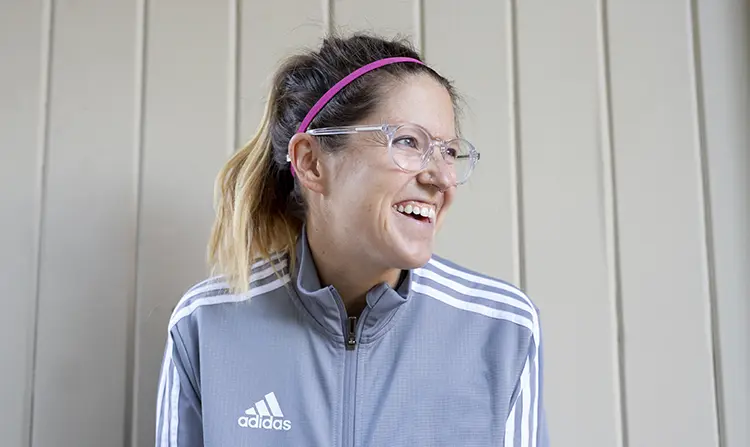
Hi everyone! I’m Jenn and I create content to help female soccer players and coaches maximize individual and team potential by developing healthy mindset skills. Join other subscribers and sign up for the newsletter for all my best tips and advice!
We respect your privacy. Unsubscribe anytime.

